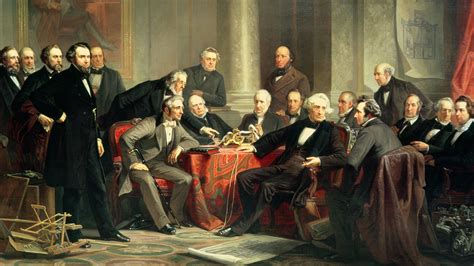Modern European history is a vast and intricate tapestry, woven with the threads of political, economic, social, and cultural developments that have shaped the continent over the past centuries. From the rise of nation-states and the Enlightenment to the industrial revolution, world wars, and the ongoing quest for European integration, the history of modern Europe is a story of both progress and conflict.

The 16th and 17th centuries witnessed the emergence of nation-states in Europe, as feudal structures gave way to centralized monarchies and national identities began to take root. The Protestant Reformation challenged the authority of the Catholic Church, leading to religious wars and a shift towards secularism. The Enlightenment, a philosophical movement that emphasized reason and scientific inquiry, further undermined traditional authorities and provided a foundation for new political and social ideas.
The 18th century marked the beginning of the Industrial Revolution in Europe, a period of rapid technological innovation and economic growth. The invention of the steam engine, the spinning jenny, and other machines transformed production processes and led to a shift from rural to urban societies. Economic disparities grew, however, as industrial capitalism created both wealth and poverty.
The late 18th and early 19th centuries were marked by a series of revolutions that challenged the established order. The French Revolution (1789-1799) overthrew the monarchy and established a republic, but also unleashed a wave of violence and instability. Other revolutions, such as the Haitian Revolution (1791-1804), led to the abolition of slavery and the establishment of the first independent black republic in the Western Hemisphere.
The 19th century witnessed the rise of nationalism, a powerful force that fueled both political and economic aspirations. European powers expanded their empires in Asia, Africa, and the Americas, competing for resources and geopolitical dominance. Imperialism brought both economic benefits and political repression, and its legacy continues to shape global politics today.
The first half of the 20th century was dominated by two world wars that devastated Europe. World War I (1914-1918) witnessed the collapse of empires, the rise of fascism and communism, and the deaths of millions. World War II (1939-1945) saw the Holocaust, the systematic genocide of European Jews by Nazi Germany, and the rise of the United States and the Soviet Union as global superpowers.
After World War II, Europe was divided into two spheres of influence: the Western Bloc, aligned with the United States, and the Eastern Bloc, aligned with the Soviet Union. The Cold War (1947-1991) was a period of intense geopolitical rivalry and military tension, which also saw the emergence of European integration. The European Union (EU) was founded in 1957 as a way to foster cooperation and economic interdependence among European states.
Modern Europe faces a number of challenges, including rising populism, economic inequality, and the need to address climate change. However, the continent also has a long history of innovation and resilience, and it continues to be a global center of economic, political, and cultural influence.
| Event | Year |
|---|---|
| Rise of Nation-States | 16th-17th centuries |
| Protestant Reformation | 16th century |
| Enlightenment | 18th century |
| Industrial Revolution | 18th-19th centuries |
| French Revolution | 1789-1799 |
| Rise of Nationalism | 19th century |
| World War I | 1914-1918 |
| World War II | 1939-1945 |
| Cold War | 1947-1991 |
| European Union | 1957-present |
- Martin Luther (1483-1546): Protestant reformer who sparked the Protestant Reformation
- Isaac Newton (1643-1727): Scientist and mathematician who made significant contributions to the Scientific Revolution
- Napoleon Bonaparte (1769-1821): French military and political leader who rose to power during the French Revolution
- Karl Marx (1818-1883): Philosopher and economist who developed the theory of communism
- Albert Einstein (1879-1955): Physicist who developed the theory of relativity
- Winston Churchill (1874-1965): British statesman who led the country through World War II
- Charles de Gaulle (1890-1970): French general and politician who founded the Fifth Republic
- Jacques Delors (1925-2020): French politician who served as President of the European Commission
Motivations
- Nationalism: A desire to create and maintain independent nation-states
- Industrialization: A desire to achieve economic growth and technological progress
- Enlightenment ideals: A belief in reason, science, and progress
- Anti-imperialism: A desire to end the domination of European powers over other regions
Pain Points
- Religious wars and persecution
- Economic inequality and social unrest
- Imperialism and colonialism
- World wars and genocide
- Rising populism and economic inequality
- Read widely: Explore books, articles, and primary sources to gain a comprehensive understanding of the topic.
- Visit historical sites: Museums, battlefields, and other historical landmarks can provide a firsthand experience of the past.
- Engage with media: Documentaries, films, and podcasts can offer different perspectives and bring history to life.
- Focus on connections: Modern European history is interconnected with global events and ideas. Pay attention to the relationships between different countries and time periods.
- Practice historical analysis: Ask questions, examine evidence, and form your own conclusions about the past.
Modern European history is a complex and fascinating field of study that offers insights into the origins of the present world. From the birth of nation-states to the rise of democracies and the challenges of the 21st century, the history of modern Europe is a story of both progress and conflict, of human ingenuity and resilience.
